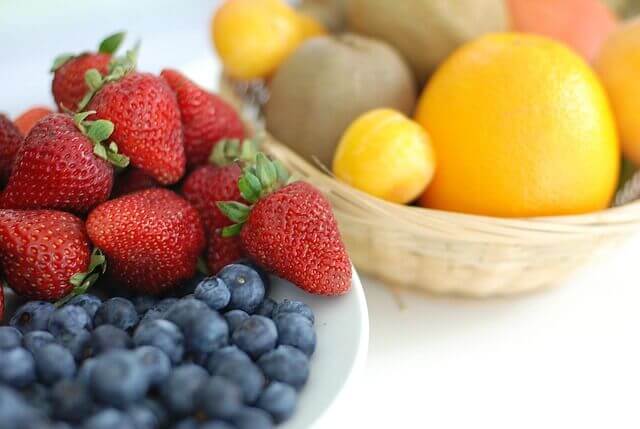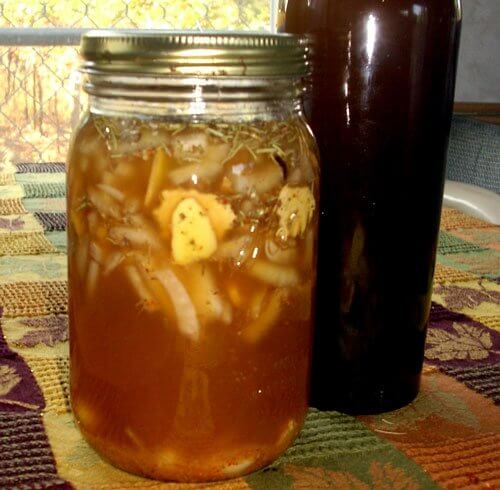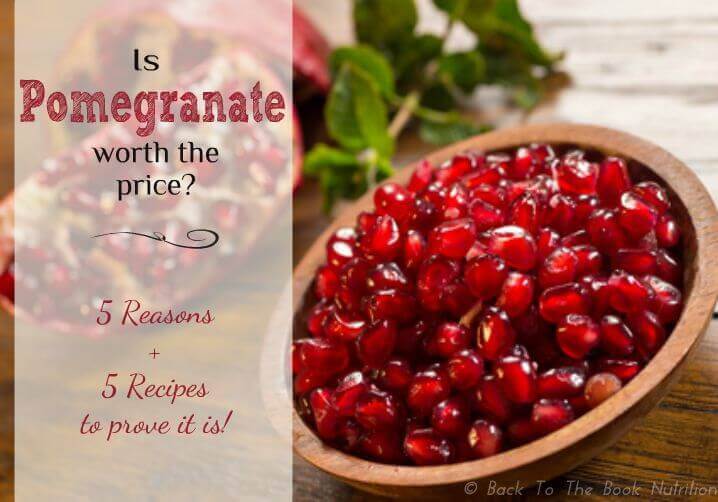Truly organic?
This morning, I had the extreme pleasure of speaking to a lovely elderly lady named Sonja, with a European accent I couldn’t quite place. I was calling to ask when the strawberries on her farm would be ready to buy, and we ended by talking about when to plant corn, and organic gardening newsletters, heirloom seeds, and buying locally.
I was leafing through our Farm Fresh Reference Guide, a small publication highlighting local agriculture, farm markets and the like in our area. The write-up about her farm/apple orchard struck me as it mentioned no toxic pesticides, environmentally friendly growing practices, heirloom varieties and then the biggie… they only sell locally, defined as less than 100 miles from their farm (fortunately, we fit the bill!).
Just last week, my hubby brought me home a copy of the Globe and Mail with the headline “Organic Food Goes Global”. It goes into the issue of imported organics increasing as more and more large corporations jump onto the organic bandwagon.
“It consumes so much energy to fly something, with the entire idea of organics reducing the use of non-renewable resources. That is contradictory to the idea” (Dr. Boeker, of the University of Guelph’s Ontario Agriculture College).
I beg to differ on that the non-renewable resources are the “entire idea” (hmmm, how about avoiding the consumption of dangerous and toxic chemicals? Or preserving the condition of the soil in our nation so that our children and our children’s children will still be able to produce food in it?) Nonetheless, he makes an interesting and valid point.
Many months ago, I read and reviewed a book called “The 100 Mile Diet- A Year of Local Eating” (which actually took place in the metropolitan area where I live). It got me thinking about the food I buy and where it comes from and the ramifications of my choices and, well, I guess you could just read the review.
But anyways, I’ve been seeking more and more ways to buy my food locally. Currently, nearly all of our meat and poultry, some of our fish, all our eggs and dairy (hmm, scratch that- not our cheese and butter), and maybe half of our produce are locally produced. I’m sure a few other things are as well, and I know a whole lot of other things aren’t.
Part of the reason I had such a lovely phone call with Sonja this morning was because I am seeking out local (pretty easy to find), non-sprayed (not so easy to find) sources for all of our berries this year (every summer, we stockpile our freezer for the rest of the year), specifically strawberries as they are the first to be available. I was so pleased to find that this local farm is also an orchard with apples, pears, peaches, plums and cherries, all unsprayed! What a find!
To bring this rather rambling post back around to the topic it began with, let me leave you with a quote from the Farm Fresh Guide:
“Local is the New Organic– Obviously, the best scenario for all of us, and the environment, would be to eat local sustainably-produced food. That is not the way that the large scale agriculture industries have developed over the past 50 years. We now have a situation where North American diets use food with more air miles on it than the average citizen has.
In my opinion, the type of food system that relies on food coming from large distances away is not sustainable. Now with the ever-growing awareness of the fragility of our planet and the scientific agreement that global warming is a reality, food transportation and it’s impact on the global environment may be the impetus to drive governments and citizens back to local food systems, and away from what has become an increasingly global agriculture (including organic) industry.
Interest in individual health was one of the initial forces behind the interest in organic, fresher and more nutritious food. Unfortunately, as larger corporation began to take over the organic market, local growers found it more difficult to compete in their own local markets. Now with consumers and scientists questioning the quality of air-freighted organic products, attention is returning to local agricultural supplies.”
So, what says you on the topic? Do you think imported organics are a big deal or a non-issue? Are you seeking to purchase more foods locally? Where and how are you finding your food sources? What does organic mean to you? Is this enough questions to keep you busy thinking over the long weekend? 🙂







I really try to create a balance between the two. I just joined a CSA so I will get 9 baskets this summer of fresh produce from 30 miles away. I also get my beef and eggs from my brother’s farm 10 miles away. Most of this is free range and organic as well as local. What I can’t grow, get from the CSA or my brother locally – I will buy organic from the store.
Hi Stephanie,
This is definitely something I have been struggling with – local vs. organic. As I’m sure you know, as mothers we want to do everything in our power to keep our children safe and healthy. If I have a choice between something organic, and something non-organic, my reflex tendency is to choose the organic item. The more pesticide I can keep out of my childrens’ tiny little bodies, the better. However, I find myself questioning my logic, as I realize that the vast majority of my organic choices are shipped in from halfway around the world, and probably not very nutritionally sound by the time they arrive. Not only that, but how much damage did they cause to my childrens’ planet from all that transportation? Not to mention I’ve noticed a very strange trend of over-packaging organic produce! At my grocery store, almost every organic item comes wrapped in a plastic bag! So I find myself checking labels, and choosing the item that was grown closest to home. They may not exactly be local (especially in the winter!), but I figure the less distance they had to travel, the better.
Hopefully in a few weeks we’ll start seeing some local, organic produce appearing at our Farmer’s Market, a day that can’t come soon enough! Obviously choosing local AND organic is the ideal solution, but in the winter this is simply not an option, so that’s when I find it difficult.
Thanks,
Alissa
I try to buy as much locally as possible, but mostly because, well, I live here. If I can help a neighbor, visit the farm, meet the farmer in the local library and chat, why wouldn’t I ? I want my children to grow up strong and healthy, not only physically but socially, emotionally and spiritually as well, and a vibrant, thriving, community is a huge part of that, in my mind. Of course I’m glad to get fresher, less envirinmentally taxing foods, but that is not my main concern. I’m glad to support organic farmers in another state or country if I can, but if I can choose, I’ll support the community that supports me as well. (I mean yes, we are all one big community ultimately, but regional, local vitality is really important to me)
I was wondering if you’d be free to share the name of “Sonja’s Farm” for those within a 100 miles of you…
Hello! I’m back from a bloggie break. Man, have I missed your posts! Anyways, this is great. I think that local is good, and organic is good, but personally, I think that organic imported is preferrable to locally sprayed. One thing I think about is what I am supporting with my dollars when I buy things, and I want to support and promote organic and natural, humane and dignified more than I want to support any old farm practice–even if it’s local. So that’s my 2 cents.